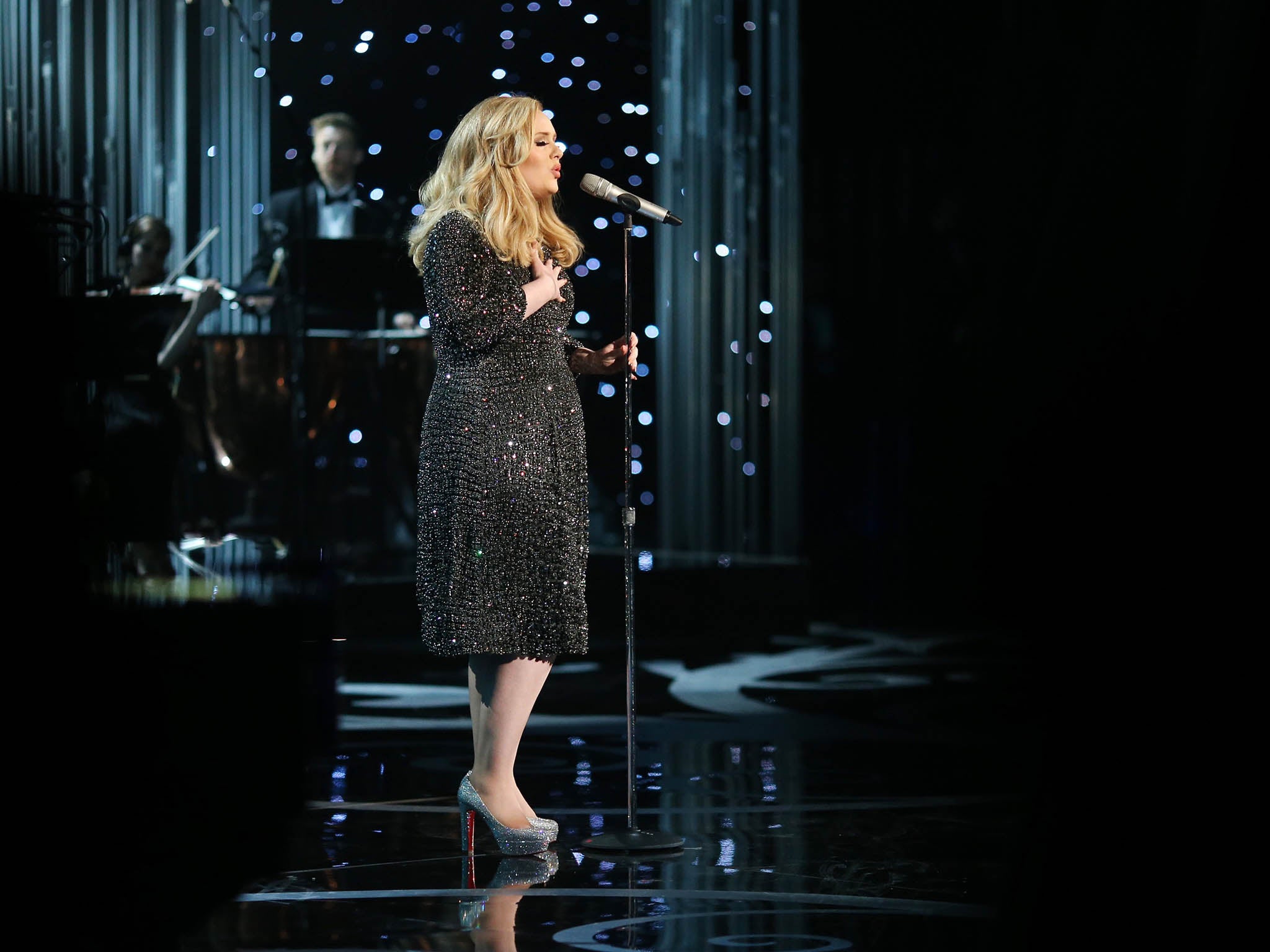Your support helps us to tell the story
From reproductive rights to climate change to Big Tech, The Independent is on the ground when the story is developing. Whether it's investigating the financials of Elon Musk's pro-Trump PAC or producing our latest documentary, 'The A Word', which shines a light on the American women fighting for reproductive rights, we know how important it is to parse out the facts from the messaging.
At such a critical moment in US history, we need reporters on the ground. Your donation allows us to keep sending journalists to speak to both sides of the story.
The Independent is trusted by Americans across the entire political spectrum. And unlike many other quality news outlets, we choose not to lock Americans out of our reporting and analysis with paywalls. We believe quality journalism should be available to everyone, paid for by those who can afford it.
Your support makes all the difference.The thing about Adele’s insistence on tracking her emotional development in song is that after a certain point, I’ve heard more than I want to about her break-up and her make-up and her ex and whatever, and I just want to stop listening. That point arrived about two-thirds of the way through 25, during “Love the Dark”, when she sings the line “This is never-ending, we have been here before”, and it triggers an empathic response in me, though probably not the one she would have hoped for.
Admittedly, that track is the worst of a slew of plodding piano ballads that stinks up the second half of 25, including the Ryan Tedder-helmed “Remedy” and the track produced by Bruno Mars’ Smeezingtons team, “All I Ask”, in which Adele seems to be trying to jinx a relationship, apparently for the sake of one last memory. “It matters how this ends,” she frets, “’cos what if I never love again?”. Is she addicted to romantic failure, or something?
That certainly seems possible, given the way she luxuriates in regret and recrimination: “Why do I hate the idea of being free?” she ponders in “Water Under the Bridge”, a Greg Kurstin production employing little more than a tom-tom tattoo and damped guitar figure, but which still manages to sound like the Everest of emotional melodrama. 25 plays directly to familiar expectations of indulgent heartbreak, writ billboard-large in songs like the frankly terrifying single “Hello”, where her phone-stalker pesters an old flame for the chance to meet up and “go over everything”, three words guaranteed to make a man’s blood run cold.
“I’m in California dreaming of how we used to be when we were young and free,” she explains, the subtext of which is that he, poor chap, is not now and never will be free of her, as his stuffed answerphone doubtless attests. For when Adele wants to rake over old ground, she employs the kind of industrial-sized harrow they use in The Archers, and that ground stays well and truly raked.

Take “Send My Love (To Your New Lover)”, where she wields sarcasm with childish spite in the album’s most musically interesting song – a genuine oddity by both her standards and those of Swedish hit-machine Max Martin & Shellback. With only her sparse guitar the only instrument apart from Shellback’s simple drum programme, the focus is squarely on Adele’s vocal chops, with her quirky lead line supported by ingeniously arranged banks of her own backing harmonies and counterpoints, in an infectious arrangement aptly akin to a playground skipping-song.
Her vocals are clearly the central matter of 25, as they should be, both in deft little touches like the final title-phrase of “Remedy”, and majestic layered chorales like that on the moody, Danger Mouse-produced “River Lea”, in which the organ and the huge, cavernous echoing reverb fall away just before the end, to reveal her meticulously interlaced harmonies in open view, like an acappella blueprint of the song, or a medical diagram of vocal musculature. But it’s not quite as startling as the Kurstin-produced “Million Years Ago”, for which he close-mics her voice so much it’s almost as if she’s inside your head, with just his acoustic guitar and her wordless, melismatic vocal flourishes for company.
But while the recurrent obsession with former love affairs and setting ancient issues straight grows wearisome well before the album’s close, it could have been far worse. The final track, “Sweetest Devotion”, ends with a tiny sliver of what appears to be a very young child’s voice - suggesting the devotion is directed primarily at Adele’s son. An album of regret and recrimination, or an album of blissful mummy-love? Maybe we’ve dodged a bullet there.

Join our commenting forum
Join thought-provoking conversations, follow other Independent readers and see their replies
Comments